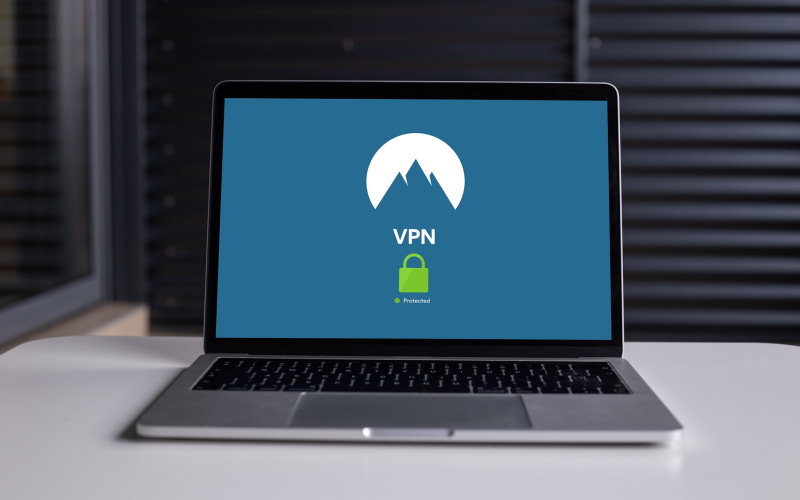
VPN servers are even more crucial when your staff works remotely. Therefore, your team must prioritize VPN security and availability to create a safe, adaptable organization.
Even though VPNs are great, they have a few security flaws. You may set yourself up for VPN abuse if you aren’t careful.
Here are a few tips to help you avoid VPN abuse.
1. Introduce Other Internet Security Measures
Consider using other internet security practices in addition to VPN. You can only enjoy VPN’s optimal benefits if combined with a larger internet security framework. This is especially true if you regularly link to your personal website or your business’s website.
You’ll need two key services: VPS hosting and SSL certificates, to truly protect your private information.
You should receive a private server. Virtual private server hosting is similar to dedicated hosting. Your website isn’t at risk of being banned or compromised due to the lax security of other websites on the server.
However, VPS hosting is far less expensive than dedicated hosting, making it perfect for smaller companies and websites that typically require more security than shared hosting offers.
Additionally, any data entered into your website is encrypted by SSL certificates. These are essential, especially for pages that gather login details or sensitive information like credit card information.
2. Ensure that Everyone Uses Antivirus and Firewall
You could simply demand that everyone who has access to your VPN install a specific brand of software that you trust to spare yourself trouble later. Even better, you could put the program on their devices for them.
Whatever you do, make sure that all the devices that will be used with your VPN have an up-to-date antivirus program installed on them. To provide an extra level of security, ensure that they also employ firewalls.
3. Limit the People that Can Access Your VPN
Just as you wouldn’t divulge your bank account’s PIN to anyone, you shouldn’t let anyone access your private network. Your VPN should only be accessible to people you completely trust.
If you fire an employee, you should immediately prevent them from accessing your VPN. Do this even before letting them go. In addition, you shouldn’t let anyone access your private network unless you are sure that you can trust them.
If someone with malicious intent gains access to your VPN, they could do a lot of damage.
4. Use Cloud VPN
Cloud VPNs are a popular solution when you need support for your remote workers. They are secure and promote better access to data. Users in your workforce can connect securely to your virtual private cloud using a cloud VPN (VPC).
A VPN gateway encrypts the data and traffic between the two, and a different VPN gateway decrypts it on the other end. It supports data decryption, enables remote access, and provides an extra level of security.
If you need to protect your team while using business apps, it is highly imperative that the means of entry should be made via GoodAccess – not only does this type of cloud VPN provide a secure connection to internal company resources and databases, but it also helps to prevent abuse among employees.
With traditional, on-premise VPNs, it can be difficult to monitor and control user behavior. However, with a cloud-based solution like GoodAccess, businesses can set up detailed policies regarding what activities are and are not allowed on the network.
This allows admins to reduce VPN abuse by cutting off access from problematic users as soon as problems arise. By using such tools organizations can ensure that they get the most out of their VPN without having to deal with issues like bandwidth-hogging or unauthorized file sharing.
5. Use Reliable Authentication
Your VPN should ideally employ multi-factor authentication. This means that anyone attempting to access your VPN should be forced to provide extra identification in addition to a password.
This might be as simple as sending them a four-digit code created automatically and transmitted to their phone each time they attempt to access your network.
However, even if you don’t utilize multi-factor authentication, you must use a VPN password at the very least. Ensure your password is strong, given how crucial it is to keep your VPN secure. This includes not using loved ones’ birthdays, favorite book series, or childhood pets.
6. Get VPN From a Reputable Seller
Free products from certain shady businesses may entice you. However, they later sell your information to the highest bidder. This could negate the security benefits of buying a VPN in the first place. Choose a VPN provider that offers top-tier security along with fast internet.
7. Software Updates
Even though software update notifications can be annoying, they are essential. Staff should adhere to them and update their software regularly. This way, you can safeguard yourself against breaches.
Maintaining your software updates is a cybersecurity best practice. You can prevent theft and hacking of the equipment you use by updating the software on them. This includes your computers and mobile devices. Updates may appear to arrive at the worst possible times, but they are necessary to keep information secure.
Cover Image by Stefan Coders from Pixabay
